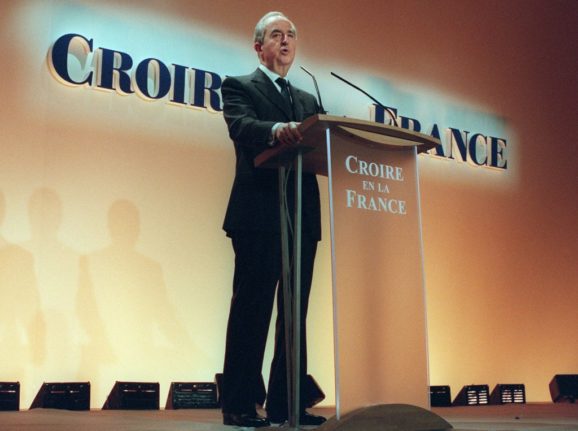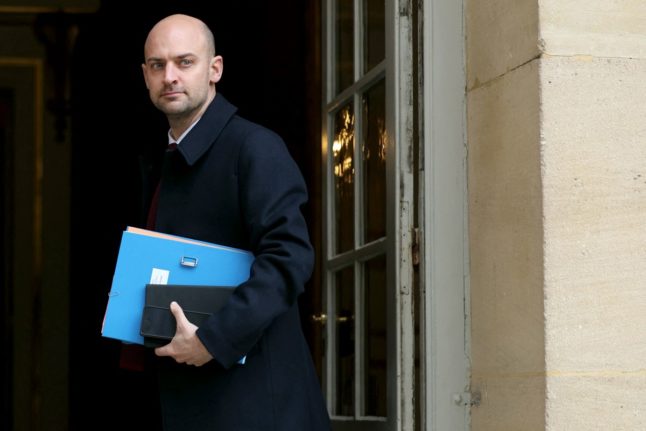Balladur, 91, joins a long list of senior French politicians pursued for alleged financial wrongdoing, including former president Nicolas Sarkozy and his predecessor, Jacques Chirac.
The conservative ex-premier will be tried by the Court of Justice of the Republic in Paris, a tribunal dedicated to hearing cases of ministerial misconduct.
Also in the dock will be his former defence minister François Leotard, 78, though his presence at the trial's opening is uncertain because of illness.
Balladur will appear in court on Tuesday “to face his judges and answer their questions,” his lawyer Felix de Belloy said.
The two men were charged in 2017 with “complicity in the misuse of corporate assets” over the sale of submarines to Pakistan and frigates to Saudi Arabia between 1993 and 1995, when Balladur was prime minister in the final years of François Mitterrand's presidency.
The kickbacks are estimated at 13 million francs, now worth some €2.8 million, after accounting for inflation.
The sum is believed to have included a cash injection of about 10 million francs to Balladur's 1995 unsuccessful presidential campaign against Chirac.
Balladur, who also has to answer to a charge that he concealed the crimes, has denied any wrongdoing, saying the 10 million francs came from the sale of T-shirts and other items at campaign rallies.
The claims came to light during an investigation into a 2002 bombing in Karachi, Pakistan, which targeted a bus transporting French engineers.
Fifteen people were killed, including 11 engineers working on the submarine contract.
The Al-Qaeda terror network was initially suspected of the attack.
But the focus later shifted to the arms deal as investigators considered whether the bombing may have been revenge for Chirac's decision to halt the commission payments for the arms deals shortly after he beat Balladur in the presidential vote.
Leotard is accused of having created an “opaque network” of intermediaries for the contracts signed with Pakistan and Saudi Arabia.
The ex-premier also stands charged with instructing the budget ministry – led at the time by Sarkozy – to approve state guarantees for “deficient or underfunded” contracts, because of the alleged kickbacks.
Investigators say that cash deposits in Balladur's campaign fund coincided with trips to Switzerland by Ziad Takieddine, a Lebanese-French intermediary who has long been active in French rightwing circles.
Takieddine fled to Lebanon last June after a Paris court sentenced him and another middleman, Abdul Rahman El-Assir, to five years in prison over their role in the “Karachi” kickbacks.
Balladur's former campaign manager Nicolas Bazire was given a three-year sentence by the same court, as was Leotard's adviser Renaud Donnedieu de Vabres.
Thierry Gaubert, an adviser to Sarkozy at the finance ministry, and a former executive at state-owned naval contractor DCN (since renamed Naval Group) got two-year sentences. All have appealed the rulings.
Takieddine told judges in 2013 that he participated in the secret financing of Balladur's campaign after being asked by Bazire and Gaubert, though he retracted the claim six years later.
In November, Takieddine also took back his claim that he delivered suitcases carrying a total of €5 million from Libyan dictator Moamer Kadhafi to Sarkozy's chief of staff in 2006 and 2007, to help his successful presidential campaign.
Sarkozy has denied the allegations, and investigations into the case are continuing.



 Please whitelist us to continue reading.
Please whitelist us to continue reading.
Member comments